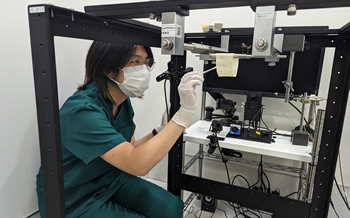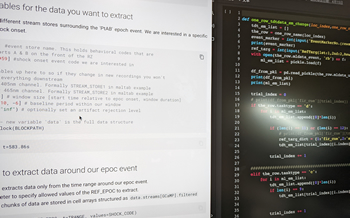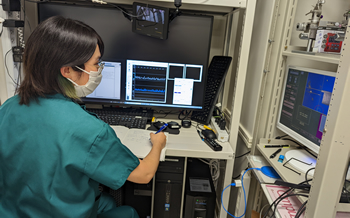- Fields of study:
- Neuroscience / Infomatics
- Mentors:
- Dr. Matsumoto Masayuki / Dr. Jun Izawa

Colourful Bi-disciplinary Research
Before coming to this program, I did research in neuropsychology. I was interested in the neural mechanisms of cognitive functions. In my master's research, I investigated human brain activity relating to executive functions. However, to go further in understanding the neural mechanisms of cognition, it is important to understand the information conveyed by the neurotransmitters or neural activity in the circuit. Therefore, I changed my research direction to do animal experiments to study the neural mechanisms of cognitive functions. Besides, I want to explain its roles from a computational perspective. Because of my mentor's recommendation, I knew about the Humanics program, and the direction of my research fits well with the integrative research advocated by Humanics. This is the main reason for my application.
During my research life, both my main mentor and sub-mentor give me a lot of constructive advice. In addition, discussing with lab members also helps me a lot.
The financial support from Humanics allows all students to focus on their research without having to worry about the difficulties of living. The curriculums at Humanics are very practical and flexible. Students can choose from courses in biomedical sciences/physical sciences/engineering/informatics, as well as many courses in social practice. These courses were very helpful in framing the body of knowledge for my integrative research. They also practiced my academic skills, reading, critical thinking, writing, and speaking.
I am very fortunate to be able to conduct my research at Humanics. It will be an unforgettable academic journey in my life.
[Time table of an ordinary day]

Make experiment tool for fixing experimental animal head

Coding data analysis program

Observing and making experiment record
